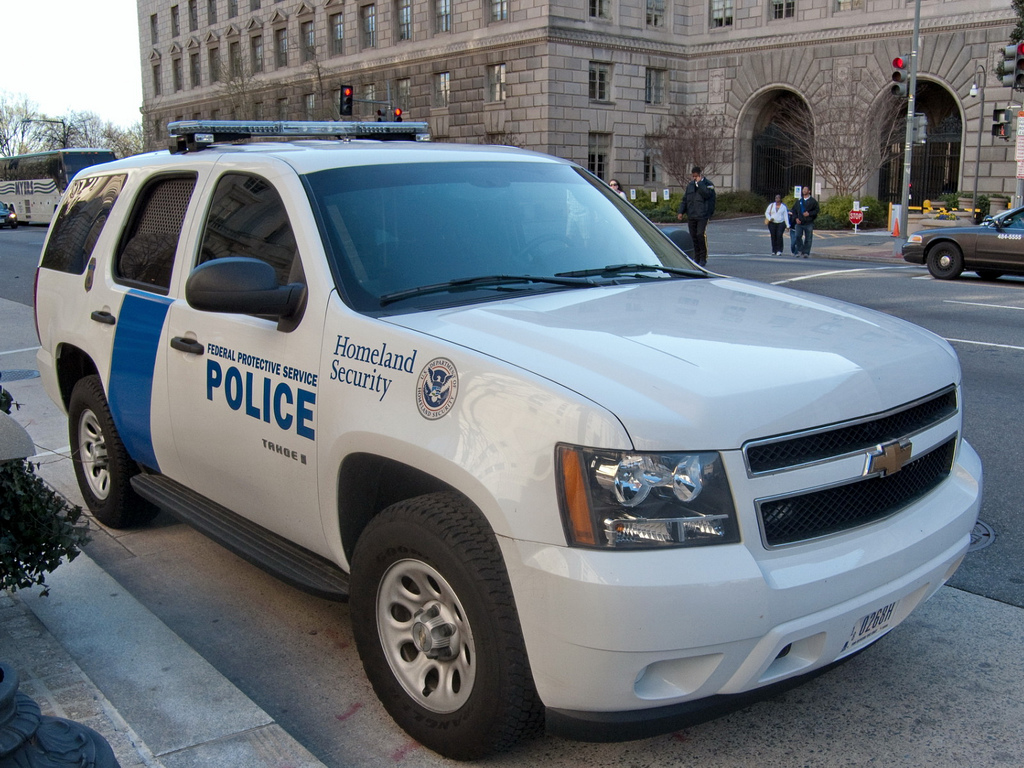It’s Time for the Senate to Act on Homeland Security
One of the most important post-9/11 reforms that has helped keep our nation safe from mass-casualty terrorist attacks was the creation of the Department of Homeland Security (DHS). This year, the Senate has an opportunity to help DHS better realize its mission by joining the House in reauthorizing the department for the first time since its creation in the aftermath of the Sept. 11 attacks.

Published by The Lawfare Institute
in Cooperation With

One of the most important post-9/11 reforms that has helped keep our nation safe from mass-casualty terrorist attacks was the creation of the Department of Homeland Security (DHS). This year, the Senate has an opportunity to help DHS better realize its mission by joining the House in reauthorizing the department for the first time since its creation in the aftermath of the Sept. 11 attacks.
The Homeland Security Act of 2002, which created DHS, brought together 22 previously separate agencies with 179,000 employees. DHS inherited customs and border security from the Justice and Treasury Departments, aviation security from the FAA, and maritime and port security from the Department of Transportation, as well as the Federal Emergency Management Agency. Those missions alone would be a challenge for any agency—but DHS is also responsible for government and private sector cybersecurity, and has important intelligence and counterterrorism duties as well. Knitting DHS’s many disparate components together into a coherent agency with a shared culture and managing the now 240,000-person workforce (all while handling crises ranging from surges of unaccompanied minors at the border, to hurricanes, to terrorist plots against aviation, to regular cyberattacks) is a fearsome management challenge.
To execute its complex mission well, DHS needs clear, coherent guidance and strong oversight from Congress. Unfortunately, Congress did not pair its historic post-9/11 reforms in the executive branch with equally deep reforms to its committee structures in the House and Senate. In the 9/11 Commission Report, we recommended that Congress “create a single, principal point of oversight and review for homeland security.” Logically, that “principal point” should be the Homeland Security Committee in the House and the Homeland Security and Governmental Affairs Committee in the Senate. Unfortunately, those two committees continue to share jurisdiction over DHS with an astonishing 92 other other committees and subcommittees, because committees that oversaw the agencies folded into DHS were reluctant to give up their jurisdiction over those functions.
Fragmented congressional oversight presents real costs for homeland security. The department’s leaders need to create a strategic vision for managing the department as a whole. The current oversight structure in Congress cannot provide guidance in that task, as committees that only oversee certain DHS components will naturally focus on their slice of the department. Reporting to a vast array of committees also places an extraordinary administrative burden on DHS where staff spend countless hours writing reams of testimony, preparing their principals to appear, and responding to questions for the record. Repetitive testimony distracts senior leaders and diverts resources away from the mission: protecting the homeland.
While Congress has fallen down on critically important reform of its committee jurisdiction, fortunately, there is some good news. In July, the House passed a comprehensive authorization bill for the department for the first time since 2002. Then-DHS Secretary John Kelly commended the legislation for providing much-needed “updated authorities, updated support, and updated accountability for the world we live in today.” If enacted into law, this means that DHS would finally receive clear legislative guidance across the entire spectrum of the department’s mission—just as the Department of Defense receives each year in the National Defense Authorization Act. This is a major bipartisan accomplishment for House Homeland Security Chairman Michael McCaul (R-TX) and Ranking Member Bennie Thompson (D-MS) who have worked for years to bring this about. Because of the fragmented committee structure for homeland security, this legislation moved only with the cooperation of the chairs and ranking members of the other committees of the House with jurisdiction. They, as well as House leadership of both parties, deserve commendation.
It is now the Senate’s turn to act. The Homeland Security and Governmental Affairs Committee, led by Chairman Ron Johnson (R-WI) and Ranking Member Claire McCaskill (D-MO), should mark up their own DHS authorization bill and work with the other committees with jurisdiction over parts of DHS to ensure that referrals to those committees are expeditious. The 9/11 Commission’s recommendation that both houses of Congress concentrate jurisdiction over DHS in one principal point of oversight remains the long-term goal. In the short term, the Senate can best support the department by moving an authorization bill through the current committee structure. If successful, this process can hopefully be repeated in subsequent years, giving the department the ongoing guidance it needs and deserves.
Effective congressional oversight is especially important for homeland security because much of the department’s national security mission takes place outside of public view. With limited scrutiny by the public and press, only Congress can ensure that the department is carrying out its mission effectively. Put simply: If Congress is not effectively overseeing these programs, no one is. Passing an authorization bill for DHS this year would help us stay ahead of ever-changing threats and be a historic step toward effective congressional oversight—and thus toward a safer homeland.



.jpg?sfvrsn=d0f071b6_5)

